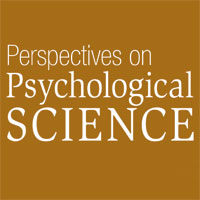Commitment and Forgiveness in Relationships Focus of APS Registered Replication Report Project
 APS is pleased to announce the launch of a new Registered Replication Report (RRR) aimed at replicating a 2002 experiment investigating commitment and forgiveness in close relationships.
APS is pleased to announce the launch of a new Registered Replication Report (RRR) aimed at replicating a 2002 experiment investigating commitment and forgiveness in close relationships.
Drawing on the framework of interdependence theory, psychological scientists Eli Finkel, Caryl E. Rusbult, Madoka Kumashiro, and Peggy A. Hannon hypothesized that commitment, as a fundamental property of relationships, would promote “positive mental events, pro-relationship motives, and forgiveness.”
The researchers designed an experiment to test this hypothesis, recruiting 89 undergraduate student participants who were in dating relationships at the time of the study. The students were randomly assigned to either a low-commitment or a high-commitment experimental condition. Students in the high-commitment group answered questions designed to activate thoughts related to dependence and commitment (e.g., “Describe two ways in which you feel that your life has become ‘linked to’ your partner.”). Students in the low-commitment group answered questions designed to activate thoughts regarding independence and lack of commitment (e.g., “Describe two ways in which you are independent of your partner.”).
The students then completed a second survey, ostensibly for another study. They read descriptions of various acts of betrayal (e.g. “Your partner lies to you about something important.”) and rated how likely they would be to respond in certain ways to the betrayal.
The results of the experiment revealed that students who had been primed to feel high levels of commitment were less likely to react to betrayal in relationship-destructive ways than were the students who had been primed to feel low commitment. The researchers interpret these results as indicating that highly committed individuals may forego such destructive reactions with the intent of forgiving partners’ transgressions.
The study, which is highly cited in the literature, is novel in that it uses an experimental technique to induce varying levels of relationship commitment, and it is one of the few studies to show that inducing greater commitment leads to greater forgiveness. Consequently, it serves as a cornerstone for the theoretical importance of relationship commitment as a predictor for relationship outcomes, including forgiveness.
Despite its importance in the literature, a direct replication of the study has not yet been published. Given that the study results have strong implications for understanding the motivations that drive forgiveness, as well as potential applications to couples therapy interventions, it is important to estimate the size of this effect with a robust, multi-lab replication initiative.
The lead author of the original study, Eli Finkel, has worked closely with the RRR editors to ensure that the study implementation for this new RRR is as complete and consistent with the original as possible. With the exception of using computerized procedures instead of paper-based ones to maximize efficiency and comparability across replicating labs, “all parties have worked hard to ensure that the replication hews as precisely as possible to the procedures from the initial publication,” says Finkel.
Editors of Perspectives on Psychological Science are now accepting proposals from researchers who would like to participate in the large-scale replication by running the study in their lab.
Researchers interested in participating in this replication project are encouraged to complete and submit a Secondary Replication Proposal Form. Participation in the project will require running the experiment in an individual lab and analyzing the data, following the detailed protocol, to contribute to the comprehensive report to be published in Perspectives on Psychological Science.
All participating labs that follow the approved protocol will be included as authors on the comprehensive report, and the results will be published regardless of the outcome of individual replications.
The deadline to submit applications for participation in the RRR is March 23, 2015, and data collection must be completed by December 31, 2015. Note that if the editors receive a large number of applications before the March 23 deadline, the submission process may be closed early.
Reference
Finkel, E. J., Rusbult, C. E., Kumashiro, M., & Hannon, P. A. (2002). Dealing with betrayal in close relationships: Does commitment promote forgiveness? Journal of Personality and Social Psychology, 82, 956-974.





APS regularly opens certain online articles for discussion on our website. Effective February 2021, you must be a logged-in APS member to post comments. By posting a comment, you agree to our Community Guidelines and the display of your profile information, including your name and affiliation. Any opinions, findings, conclusions, or recommendations present in article comments are those of the writers and do not necessarily reflect the views of APS or the article’s author. For more information, please see our Community Guidelines.
Please login with your APS account to comment.